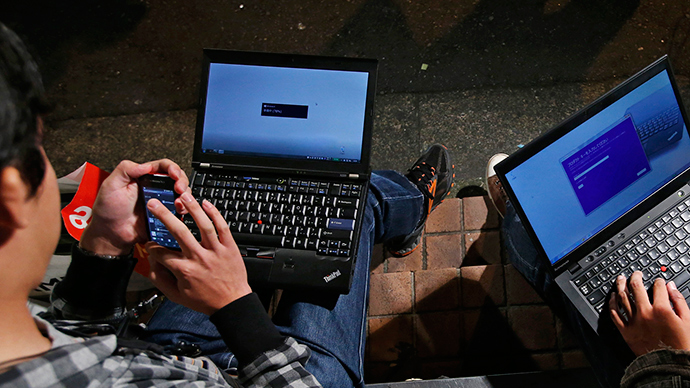‘Cyber warfare may have similar impact on security as nukes’

A country with professional computer programmers and access to intelligence gathering capabilities has great potential for affecting global security as nuclear weapons did 50 years ago, Dr. Duncan Earl, Chief Technology Officer of Qubitekk Inc. told RT.
RT:How big of a blow to global security are hackers able to deal?
Dr. Duncan Earl: I think it depends on how you define the term ‘hacker’. Most people think of a hacker as a loose group of computer programmers which have limited computational capabilities. So if you define a hacker that way there is not a big impact on global security that this group can have. However, if you describe a hacker, if you expand that to include nation states, where you can have a country with a very large number of computer programmers with access to supercomputers, with access to intelligence gathering capabilities - in that situation there is a huge potential for affecting global security. In fact, cyber-warfare is likely to have the impact on global security that nuclear weapons did 50 years ago.
RT:How can companies and strategically vital institutions such as nuclear plants defend themselves against hack attacks?
Dr. DE: Right now many of the critical infrastructure systems in developed nations are moving towards automation. We’re using machines to communicate with one another, to control our electrical grids, to control our oil and gas pipelines, our water systems. That is an important and beneficial move to automate these systems but that also opens the door to hackers.
We are at the point where we have to be very realistic that automation is going to introduce cyber security challenges. And right now the cryptography standards we use are not secure enough to really handle full scale automation. So we need improvements in cryptography as well as a sort of integrated effort as we automate these systems.

RT:Governments all over the world have been accusing each other of using cybercrime as a means of war. How much of a difference can these types of attack make?
Dr. DE: It really depends on the sophistication of the nation. I do believe that when these countries attack hardware systems, machine to machine communications there is the potential to do real physical damage. We just presented a paper at the second conference for Quantum Safe Cryptosystems where we evaluated what the impact would be of an attack on the electrical grid system in North America. And what we shared based on previous blackout data and on government disaster preparation data, we shared and estimated that there would be about 65,000 deaths and over $13 trillion in lost finances due to an attack on the North American electrical grid. That is equivalent to a nuclear attack. That is a very big impact that potentially a nation state cyber-attack could have.
RT:There are a few supposedly independent hacker groups out there such as Anonymous or Lizard Squad. Up to now, they've been no more than a nuisance to certain targets. How much potential damage could they wreak?
Dr. DE: The biggest challenge is these sorts of quantum leaps in computational power. Every year computers get faster. But there are some technologies that are on the horizon that would cause computers to get much, much faster, much, much more powerful than anyone anticipated. Quantum computer is a perfect example. We know that there are countries that are secretly and publically working on quantum computers. That type of the device would undermine all of this cyber-security cryptography that we have in place, specifically something called public-key cryptography which allows us to use the internet safely, allows machines to communicate safely. Being aware of those types of technology advances and preparing for them. That is the most important thing - preparing for them well in advance is critical.
RT:The world of hi-tech is developing at a very fast pace. How might this help hackers become more sophisticated and well-armed on the digital battlefield?
Dr. DE: Right now there is a small group of scientists that are working on something called quantum safe cryptography. And that is cryptographic systems that work even at the presence of a quantum computer. There has been very little support for this type of research because it is not a problem today. But it will be a problem in five years. We need forward thinking legislation. We need forward thinking sort of political action to move those protective technologies forward.
The statements, views and opinions expressed in this column are solely those of the author and do not necessarily represent those of RT.
The statements, views and opinions expressed in this column are solely those of the author and do not necessarily represent those of RT.












